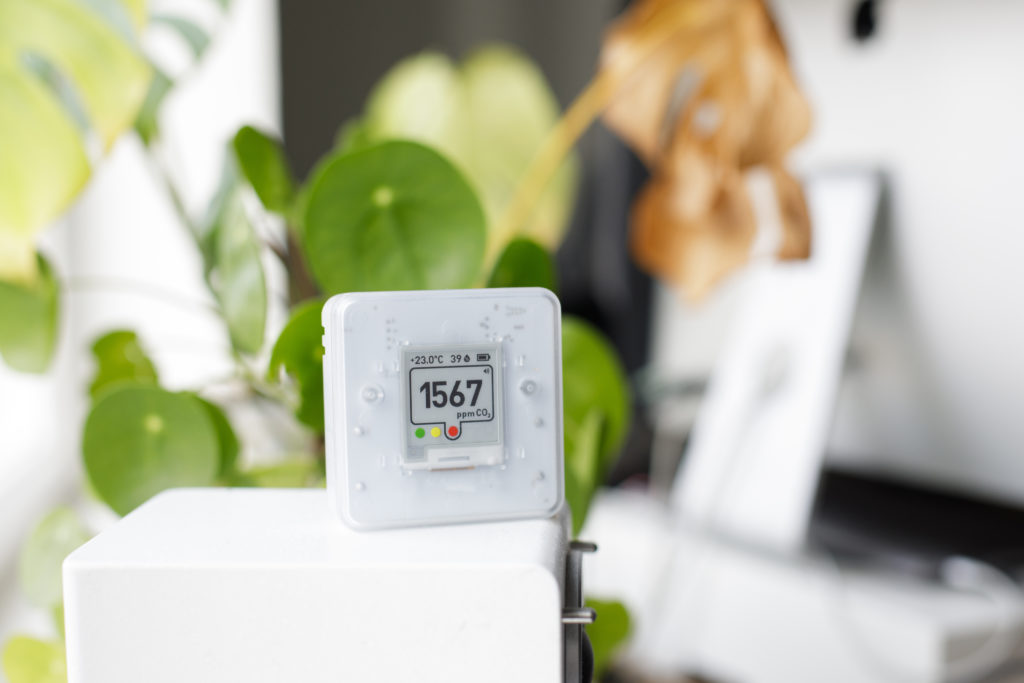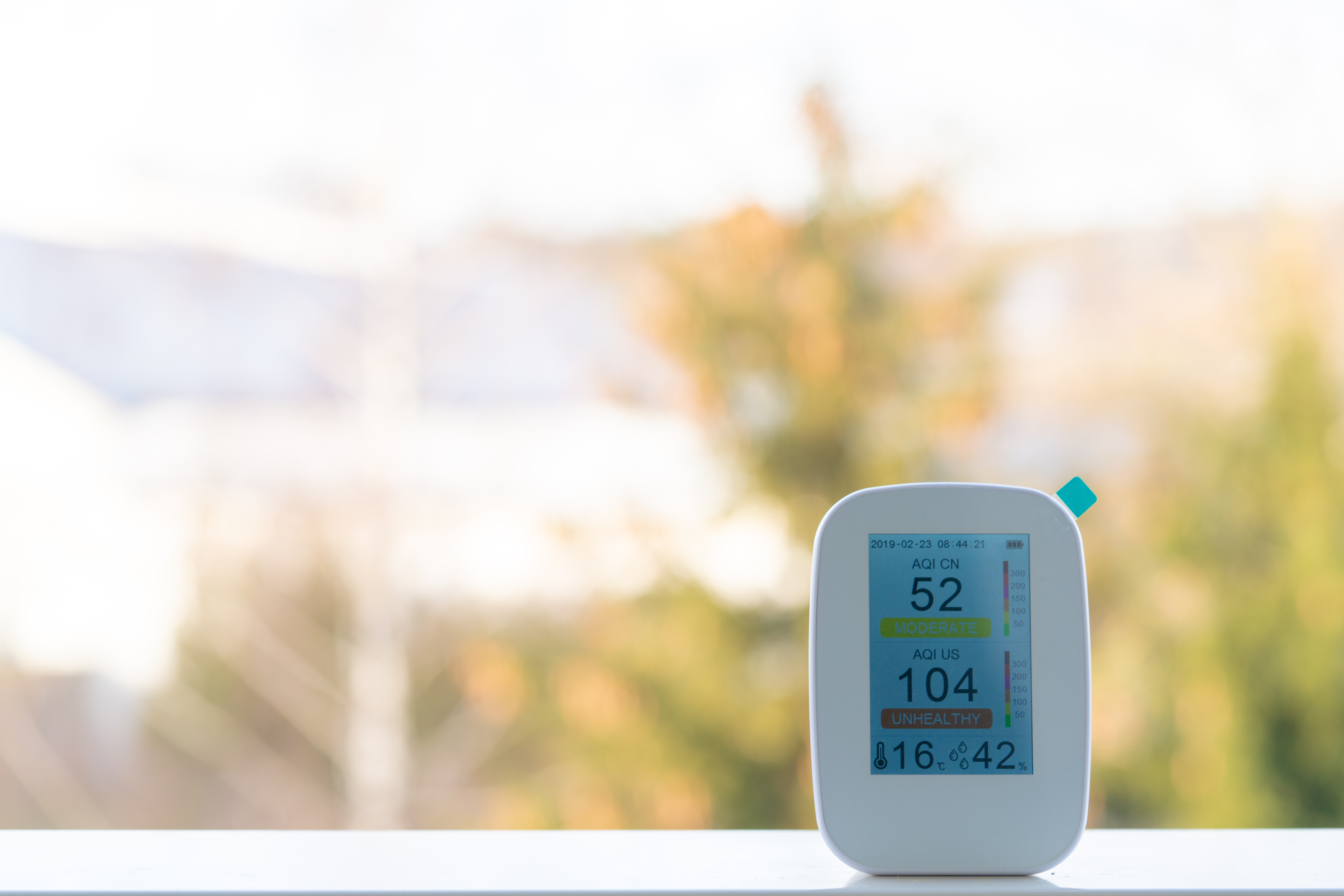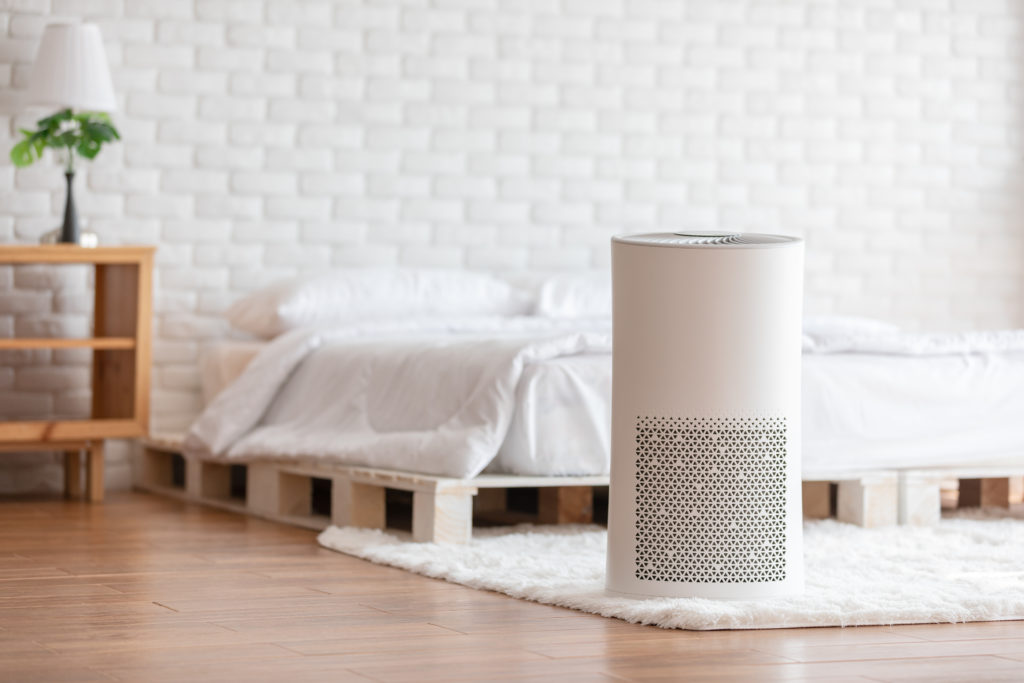Air quality is an important factor when it comes to your family’s home and health. Air quality is not always something you think of when it comes to health and wellness within a home though. You might not even know that indoor air pollution is a thing, let alone know what it is. That is totally fine! We can help clarify what indoor air pollution is, how to keep an eye – or nose – out for it, and how to get rid of it. Follow along with this post and soon you will know how to keep the air within your home clean and fresh.
Table of Contents
What Is Indoor Air Pollution?
When we think of air pollution, we usually think about the air outdoors. Essentially indoor air pollution is similar except that it is a variety of pollutants within your home in the air instead of outdoors. The one good thing is that indoor air pollution can be removed in a variety of ways like air purifiers and more.

What Types of Pollutants Can Be Present Indoors?
There is a wide range of pollutants that can live in the air around your home. Some of the most understandable and familiar include tobacco smoke and carbon monoxide. Mold and pollen should also not be a shocker to anyone who has seasonal allergies.
However, you might not think of your household cleaners or pesticides as air pollutants. Other less familiar ones include radon and asbestos, formaldehyde, and lead, especially in older buildings.
What Are The Symptoms Of Bad Air Quality In My Home?
Symptoms of bad air quality in the home can be both long and short-term. For short-term symptoms, the immediate effects can be varied depending on what the pollutant is. Differences in age, sensitivity, exposure amount, and pre-existing medical conditions can also have an effect when interacting with a pollutant.

Some common factors that you or a loved one might be impacted by indoor air pollution include eye, nose, and throat irritation as well as headaches, dizziness, and fatigue. If someone is experiencing these symptoms, it is best to remove them from the space and go to a doctor. It is also best to try to clean the air in your home as soon as possible.
How Can Indoor Pollutants Impact My Family’s and My Health Long Term?
There is definitely a stronger fear that air pollution within a home can be medically detrimental in the long term. You may not even know you are impacted by the air quality within your home for years to come.
Long periods of exposure can lead to respiratory diseases, heart disease, or cancer. Having to wait a long time to determine there is a problem does make cleaning your home more of a challenge. However, it is important to do what you can now to prevent potential problems down the line.
Types of Pollutants That Can Be In Your Home Right Now
There are a variety of ways to test your home for air pollutants, depending on what kind of pollutant you might be facing. Here are some pollutants that might be in your home’s air.
- Biological Pollutants
- If you are facing allergic reactions as symptoms, you might have biological pollutants in your air like mold, pollen, dust mites, and bacteria.
- Beyond getting your air tested, there are a few other ways you can see if your problem is biological. For example, mold can be found in very humid spaces (like your bathroom) and can smell musty.
- Chemical Pollutants
- Chemical pollutants can include VOCs or volatile organic compounds. VOCs may not be a familiar acronym, but some familiar origins can include paint, cleaners, disinfectants, and stored fuels like gas and propane. VOCs can easily become gasses or vapors that float within your home if they are not stored properly.
- VOCs can range in toxicity and short versus long-term problems. Some short-term issues can include headaches, dizziness, and fatigue. Long-term effects can look like kidney, liver, and central nervous system damage.
- There are ways you can test for these pollutants often in the form of test kits.
- Combustion Pollutants
- Combustion pollutants are familiar to most individuals as it comes in the form of tobacco smoke and carbon monoxide.
- Tobacco smoke is a huge cause of lung cancer, even to those who do not smoke. Second and third-hand smoke (the smoke that can be found in walls, furniture, and more) can still negatively impact you even if a former tenant was a smoker.
- Carbon monoxide poisoning can lead to headaches, dizziness, and ultimately death.
- Fortunately, tobacco smoke can usually be sniffed out with your nose. Carbon monoxide alarms are a common system found in homes. If you think your home has a combustion pollutants problem, it is best to address these immediately.
How to Test the Air Quality In Your Home
You can easily test the air quality of your home. Here are some ways to do it:
- Purchase an air quality monitoring system or at-home radon tests and check the air yourself
- Look for signs of mold by smelling for musty odors and looking for black spots and watermarks
- Use an air purifier and check the filter every once in a while to see how polluted your air quality is
- Install carbon monoxide detectors to ensure that your home is safe and prepared
- Change your air filters every so often
- Pay attention to your own health and well-being for allergies and other symptoms
How Can I Improve Our Home’s Indoor Air Quality?
Improving your indoor home air quality depends on the type of pollutant you are facing. If it is very drastic, you might need to purchase a test kit to determine what next steps you might face. If it is something similar to that of too much pollen or mold spores in your home, it might be as simple as purchasing an air purifier. Figuring out what your issue is is the first step to improve your air quality.
Can Air Purifiers Help Clean My Home’s Air From Pollutants?
Air purifiers can help clean certain instances of air quality problems. Air purifiers have the ability to clean the air of pollen, dust, animal dander, mold, bacteria, smoke, and viruses. There are many options of air purifiers available and some focus on certain pollutants more than others. Depending on your situation will determine what kind of air purifier you need. However, having one within your home can help make the air quality around you cleaner.
Final Thoughts
Indoor air quality is vital to you and your family’s health. By keeping the air clean and fresh in the ways of test kits and air purifiers, you will keep your home and family safe for years to come.


